All you need to know about THCA

Tetrahydrocannabinolic acid, or THCA, is a non-psychoactive compound found in raw cannabis. It gets its medical benefits after exposure to heat or light. After exposure to lights, THCA is converted to THC, and the conversion process is known as decarboxylation.
Welcome to our comprehensive blog on THCA and its therapeutic potential. We’ll delve into its origins, how it’s distinct from THC, its promising applications in health, THCA vs THC, and so on.
Key Takeaways
- THCA is a raw cannabis with no or minimal psychoactive effects.
- THCA and THC have distinct chemical structures and properties that result in different effects.
- THCA is safe, especially in its natural form.
- Depending on your hair, urine, or blood test, THCA stays in your body for several days.
- THCA is legal in most states, and some may require a medical marijuana card.
- A medical marijuana card is a card that allows you to consume marijuana within state boundaries.
- With My MMJ Doctor, you can get your card from your home.
- THCA concentrate has many health benefits, including Reducing pain and inflammation.
- THCA interacts with your body and the endocannabinoid system.
- You can contact your doctor or follow home remedies to eliminate THCA from your body.
- You can use THCA with edible smoking, etc.
What defines THCA?
THCA is a substance found in raw and unheated cannabis plants. It serves as the precursor or raw form of THC, the well-known psychoactive compound in cannabis. In its natural state, cannabis produces THCA rather than THC. When the plant material is heated, THCA hemp flower undergoes decarboxylation, converting it into THC and becoming psychoactive.
What is THCA Flower?
THCA flower is made by drying and curing cannabis plants to preserve the tetrahydrocannabinolic acid. Its potency depends on factors like growing conditions, post-harvest handling, and plant genetics.
Does THCA Get You High?
THCA is not psychoactive, so it doesn’t make you high. When heated or smoked, THCA hemp flower turns into a psychoactive compound known as THC, which is responsible for the high effects.
How is THCA Different from THC?
THCA and THC are cannabinoids found in the cannabis plant. However, they have distinct chemical structures and properties that result in different bodily effects. While THCA flower is non-psychoactive and must be converted into THC to produce psychoactive effects, THC directly binds with cannabinoid receptors in the brain to get you high. Let’s talk about THCA vs THC.
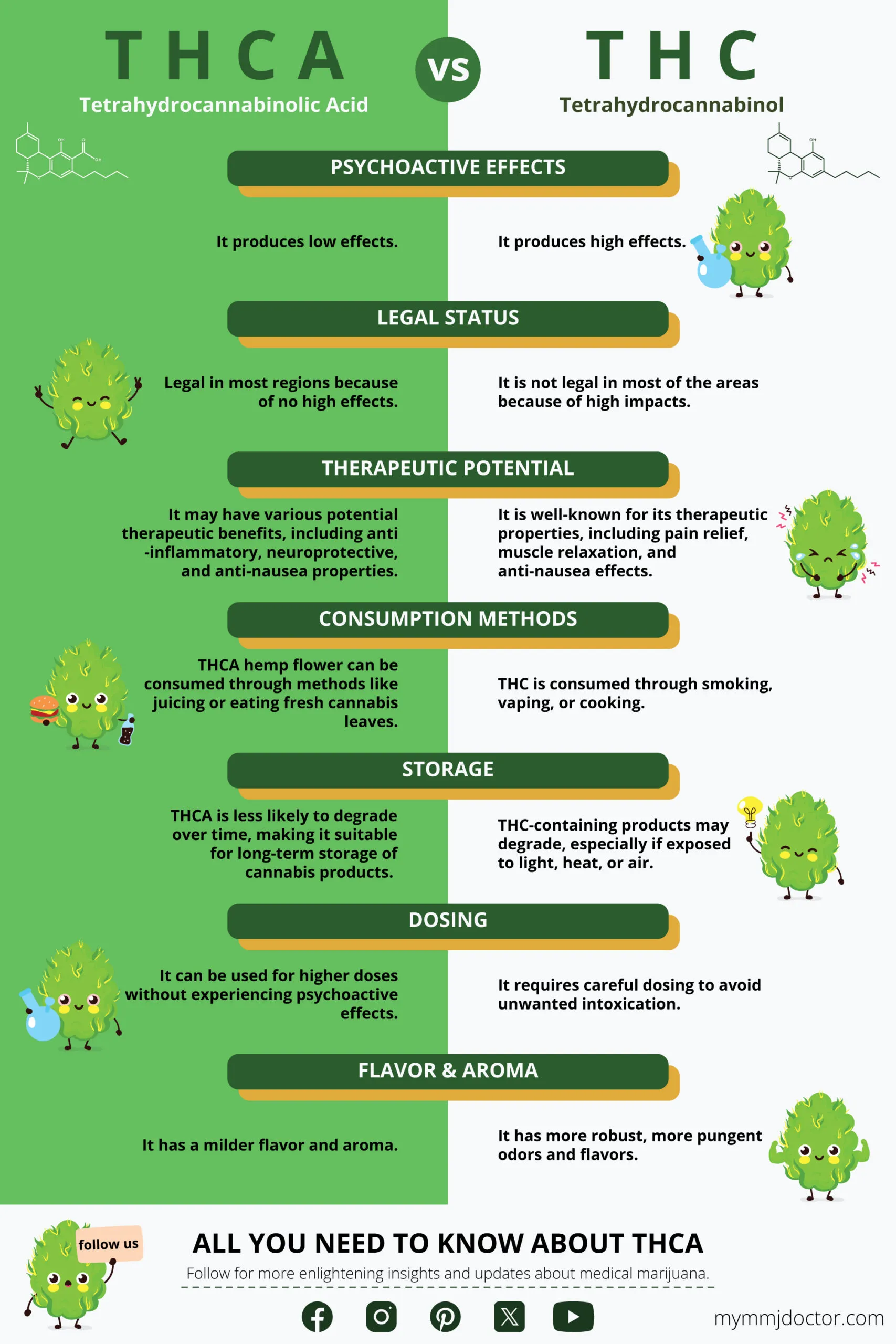
Is THCA Safe?
THCA is considered safe for consumption, especially in its natural form found in raw cannabis plants. As THCA flower doesn’t make you high, it is tolerable and safe. You may have little to no adverse impacts and enjoy the experience. However, those sensitive to THC can experience THCA side effects, including:
- Dry Mouth
- Dizziness
- Fatigue
- Red eyes
- Rapid heartbeat
- Paranoia/Anxiety
These THCA side effects often occur when you take too much of the cannabinoid and usually only last for a short time.
How Long Does THCA Stay In Your System?
It depends on certain factors, including your metabolism, how often you use it, the amount you take, and how you take it. This uncertainty arises because THCA flower lacks psychoactive properties compared to cannabinoids like THC and CBD. However, there is an average time how much time THCA stays in your body.
- In Saliva:
- THCA weed is likely to stay in your saliva for 1-3 days. The likelihood of failing a drug test is higher if you smoke THCA pre-rolls, vapes, or flowers.
- In Blood:
- THCA is likely to have a shorter presence in the bloodstream than THC. THCA can be detected in the blood for up to a day.
- In Urine:
- THCA is not screened during standard urine drug tests commonly used for substance abuse detection. However, THCA can remain in urine for one to two days.
- In Hairs:
- Similar to THC, THCA hemp flower can be found in hair for up to 90 days. Hair follicle tests are known for their long detection window compared to other drug tests.
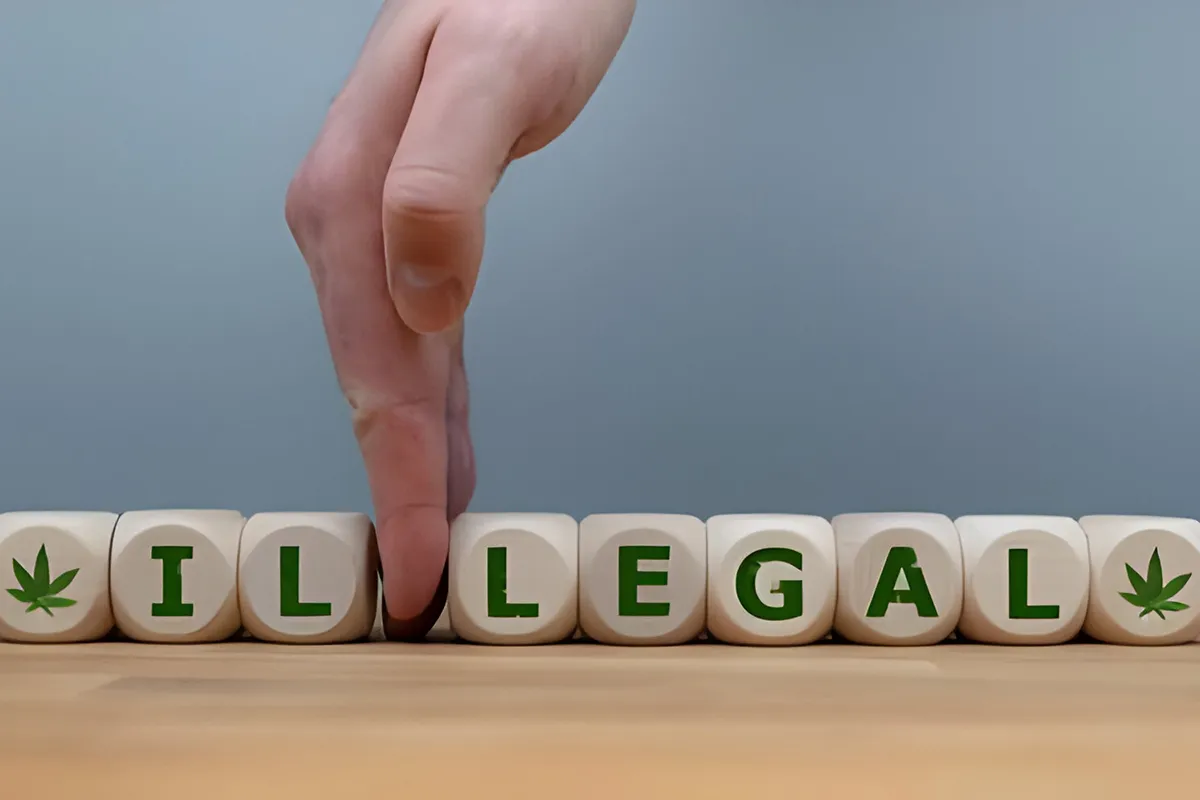
Where THCA is Legal in the United States
If you are thinking, is THCA legal? Then remember, the legality of THCA is unique across all states, so it’s good to verify with your state cannabis department. However, most states legalize THCA with a medical marijuana card. Many states have legalized marijuana for medical or recreational use, which would encompass THCA weed-containing products.
Recreational and Medical Use
THCA powder-based products are legal in states such as Alaska, Colorado, California, Illinois, Maine, Massachusetts, Michigan, Nevada, Vermont, Oregon, and Washington have legalized recreational and medical use of marijuana.
Medical Use Only
Many states have legalized cannabis for medical use only, including Arizona, Arkansas, Connecticut, Delaware, Florida, Hawaii, Louisiana, Maryland, Minnesota, Missouri, Montana, New Jersey, New Mexico, New York, North Dakota, New Hampshire, Oklahoma, Ohio, Pennsylvania, Rhode Island, Utah, West Virginia, and others. THCA-containing products may be legal for medical use in these states if proper documentation is required.
Limited THC Content
Some states have legalized cannabis for medical use with restrictions on THC content, such as Alabama, Georgia, Iowa, Kentucky, Mississippi, North Carolina, South Carolina, Tennessee, Texas, Virginia, Wisconsin, Wyoming, and others.
What Is A Medical Marijuana Card, And How To Get It?
A medical marijuana card is an ID card that allows you to purchase and consume medical cannabis in states where it’s legal. To obtain a medical marijuana card, contact My MMJ Doctor and follow the following steps:
- Register with the My MMJ Doctor and book an appointment with a medical marijuana healthcare professional in your state.
- Join the online consultation and discuss your THCA flower or medical marijuana needs.
- If the healthcare provider determines that you have a qualifying medical condition, they may provide you with a recommendation for medical marijuana. Depending on the state, register with the state medical marijuana to complete the process. Once your application is approved, you will receive your medical marijuana card.
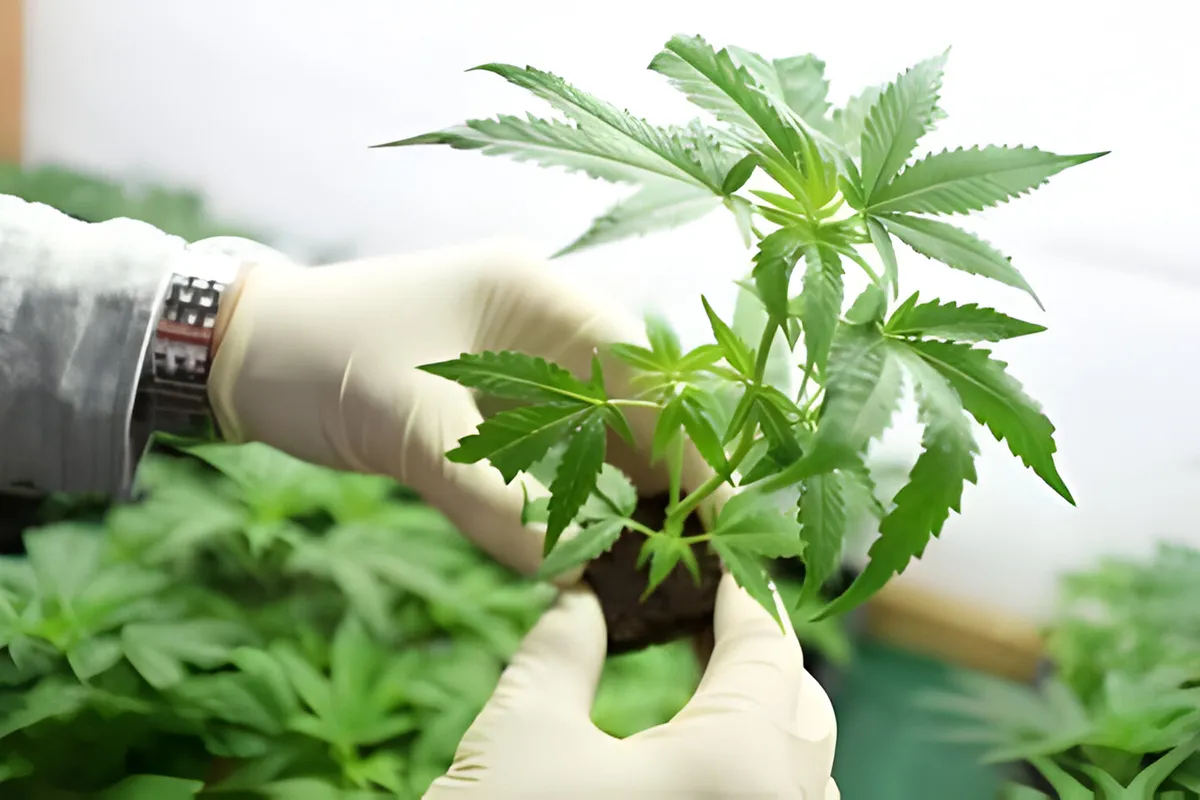
What Are the THCA Therapeutic Effects?
THCA hemp shares many of the health benefits of THC. However, the extra acid in THCA concentrate results in different interactions with the human body than THC. Here are some common ways THCA may be used:
- Appetite control
- Nausea relief
- Eating disorders
- Reducing pain and inflammation
- Reducing chronic pain
- Muscle spasms
- Inflammatory bowel disease (IBD)
- Crohn’s disease
- Alzheimer’s
- Parkinson’s
- Insomnia
- Seizures
- Epilepsy
- Multiple sclerosis
How Does THCA Interact With Your Body?
THCA powder enters your bloodstream first and travels throughout your body, meeting with cannabinoid receptors. These receptors are part of the endocannabinoid system.
This system regulates various physiological processes, including mood, pain sensation, appetite, and memory. When THCA binds to cannabinoid receptors, it may modulate these processes.
How to Eliminate THCA from Your Body
You can eliminate THCA powder from your system in different ways. You can consult a healthcare professional or use some home remedies. We will discuss both ways so you can make a more informed decision to eliminate THCA from your body.
Medical Way –
- Consult your doctor: Book an appointment with your doctor and seek guidance, especially if you have underlying medical issues or are taking prescription medications.
- Consider detox products: You can use FDA-approved detox products. These products are designed to enhance the body’s natural detox process.
- Don’t ignore digestive health: Support your digestion with probiotics or herbal supplements to help eliminate THC from your body. A healthy digestive system can help efficiently process and remove THCA weed and its metabolites from your body.
Home Remedies –
- Hydrate your body: You should drink plenty of water to eliminate THCA. It is one of the easy ways to eliminate THCA from your body.
- Eat a balanced diet: You should eat fiber-rich foods and antioxidants to support the body’s natural detoxification processes. Antioxidants found in fruits, vegetables, whole grains, nuts, seeds, herbs and spices,
- Regular Exercise: Incorporating regular aerobic exercise, such as brisk walking, jogging, cycling, or swimming, can help to promote sweating and increase circulation, further supporting the detoxification process.
How to Use THCA Weed?
Here are some of the ways to consume THCA:
- You can consume it through dabbing and vaporizing.
- You can eat raw cannabis to ingest THCA.
- You can make juice and mix the plant matter with veggies.
- You can make THCA gummies.
- You can blend cannabis into salad dressings, sauces, and other culinary staples.
- You can use the transdermal patch or other cannabis topical.
The best way to use THCA concentrate is the one that works for you, but it’s good to ignore smokable ingestion methods, including vaping. Smoking THCA weed can damage your lungs. To find the best way, consult your doctor. They will examine your health and recommend the best possible way for THC consumption.
Bottom Line
THCA, or tetrahydrocannabinolic acid, is a naturally occurring compound found in raw and unheated cannabis plants. It is converted into THC after heating or aging. It has many health benefits, such as appetite control and nausea relief, with minimal side effects. Consuming THCA is legal in most of the state because of its no high effects. Contact My MMJ Doctor to get an online consultation and information related to cannabis, medical marijuana, or medical marijuana card.
Looking To Apply For A Medical Marijuana Card?
Related Articles
Is Weed Legal in Georgia?
Is Weed Legal In Georgia?Yes, weed is legal in Georgia, but only for medical use. You still cannot use marijuana for fun in Georgia. That is illegal, and there are strict rules if you are caught with it. But the good news is, the state does...
Benefits You Are Missing Without a Michigan MMJ Card
Top Benefits of a Michigan Medical Marijuana CardIf you live in Michigan and already use cannabis, you likely know it’s easy to access. However, many people don’t realize that having a Michigan medical marijuana (MMJ) card offers additional...
What are the Michigan Medical Marijuana Laws?
What are the Michigan Medical Marijuana Laws?Medical marijuana has been legal in Michigan since 2008, helping thousands of residents manage chronic pain, anxiety, cancer symptoms, and more. But knowing what’s allowed - and what’s not - can...


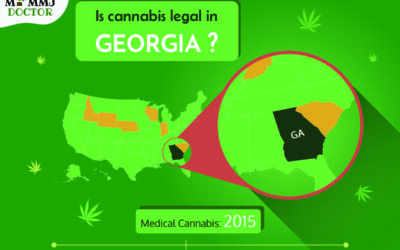
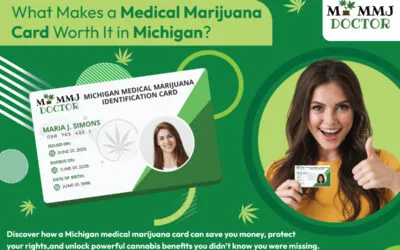
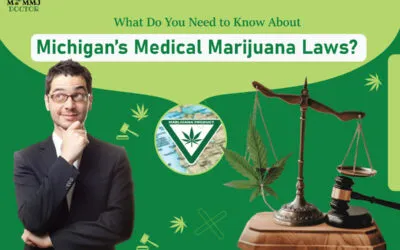
0 Comments